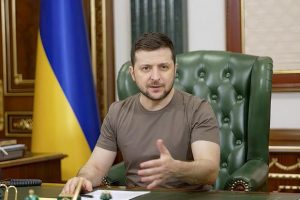Few will have forgotten the images of India which were broadcast on our screens just five months ago – bodies lying in streets, funeral pyres everywhere, hospitals overwhelmed with patients. It is such horror scenes, similar to those that came out of Italy in the Spring of 2020, that may explain why Western governments take what often seem to be unnecessarily strict precautions against Covid. No one wants to be a repeat of Italy or India. But the horror scenes did not last and, in this respect, the case of Uttar Pradesh, India’s most populous state with a population of 240 million, is worth recounting.
In April this year, Uttar Pradesh registered a peak of 38,000 Covid cases per day. Today it has barely 10 cases a day and the state government has declared half the province Covid free!
The story of how Uttar Pradesh achieved this miracle has been totally ignored in the Western media. That it has now emerged is thanks to French physician, Dr. Gerard Maudrux, who first posted the story on his blog (blog-gerard.maudrux.fr) where he offers his hypothesis for the blanket coverage: “In Uttar Pradesh, where healthcare is far inferior to ours, the result achieved has been spectacular, so brilliant that the world’s media decided to ignore it, for fear of ridiculing its respective governments.” There are clearly other reasons for the blanket coverage, as readers will discover.
Here’s the story.
On May 5, Uttar Pradesh launched a massive “trace, test, track and treat” campaign to fight Covid. The campaign was conducted by over 2,000 government teams in 97,000 villages. What is extraordinary in this story is that the World Health Organization (WHO) actively participated in the campaign and supported it. A WHO article detailed the campaign: “Each team has two members who visit homes in villages and remote hamlets to test everyone with symptoms of Covid-19 using Rapid Antigen Tests kits. Those who test positive are quickly isolated and given a medicine kit with advice on disease management. All the contacts of those who test positive are quarantined and tested using an RT-PCR at home by a rapid response team.”
Five weeks after the start of the campaign, the number of new cases in the province plummeted by 97%.
The fascinating part of this story is the question: “What was in the kit that was distributed to the villagers of Uttar Pradesh?”
The answer is: “Ivermectin, Doxycyclin, zinc and Vitamin D.”
Why is this astounding? Well, just 5 weeks before, at the end of March, the WHO issued a directive on Ivermectin stating that: “current evidence on the use of Ivermectin to treat Covid-19 patients is inconclusive. Until more data is available, the WHO recommends that the drug only be used within clinical trials.” This recommendation is part of the WHO’s guidelines on Covid-19 treatments.
At the end of August 2021, the state of Kerala (20% vaccinated) registered 31,445 new Covid cases per day while Uttar Pradesh (5% vaccinated) had 22 cases on the same day. Dr. Maudrux explains the difference in the results thus: “one had the kit, and the other refused it on the advice of the WHO.” And not one case of poisoning was reported for this so-called “horse medication.”
| Dr. Maudrux – another lone courageous voice
At the end of May 2021, Dr. Maudrux (former president of the French physicians’ pension fund) was officially denounced by the Ordre des Medecins (French Medical Association) for having recommended the use of Ivermectin to treat Covid 19. The official wording of the report filed against Dr. Maudrux stated that:”… since December 2020, Dr. Maudrux has repeatedly spoken out against recommendations issued in the interest of public health and called on doctors to prescribe unproven therapeutics.” In an interview with France Soir, Dr. Maudrux complained that physicians in France have been pushed aside by public health officials and forced to follow specific orders when treating Covid. “For me,” he said, “medicine is an art, not an exact science since no two patients are alike. By forcing doctors to follow one strict protocol for all patients, the authorities are threatening our freedom of expression and freedom of practice.” In this atmosphere of coercion, he says, French doctors are afraid to speak out. He gave two interesting examples of doctors who worked “out of line.” “I know a doctor who treated some 30-40 Covid patients with Ivermectin and within 48 hours all the symptoms disappeared. But after being the butt of criticism and complaints by pharmacists and other doctors, he became afraid and stopped the treatments. He closed his office and went away for a while. But his patients were very unhappy and when he returned, he resumed the treatments. But, today, he buys the medication himself and gives it to patients discreetly. The second example is of a colleague who used the antibiotic Azithromycin to treat Covid patients. She treated some 360 patients and none required hospitalization. So she wrote a paper about her work. Within a few weeks, she received an official order from the French health authorities telling her that she had no right to “communicate” details of her work. She was called in twice for a reprimand by the Ordre des Medecins.”
|






